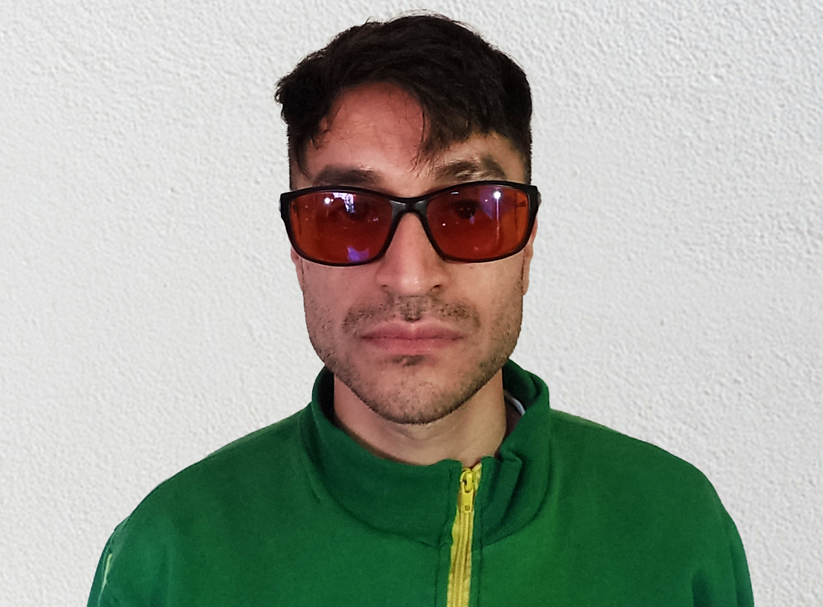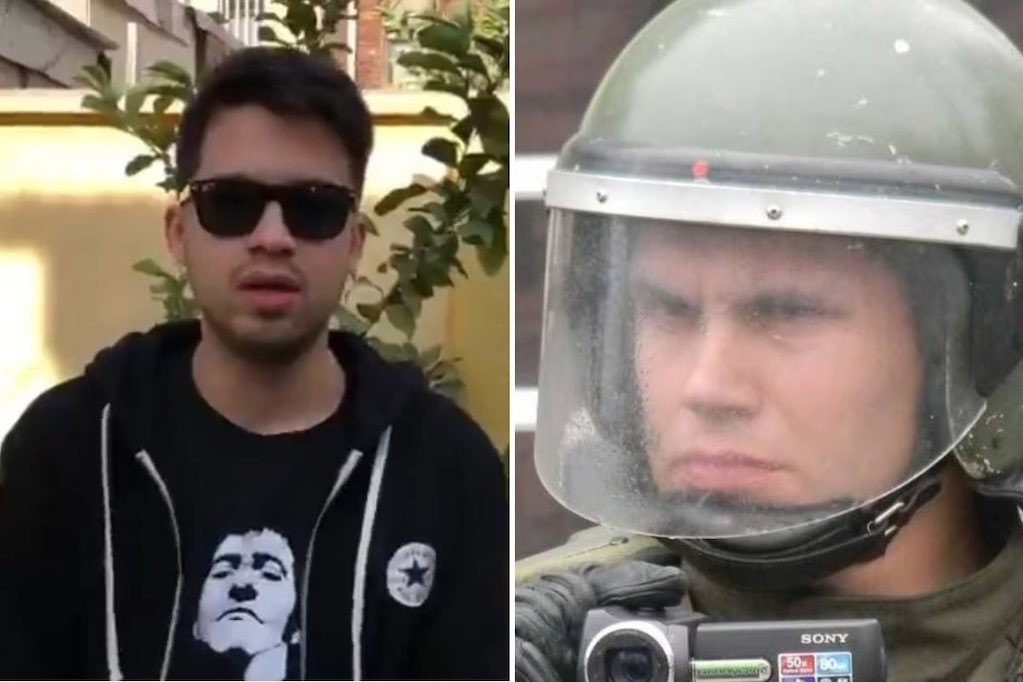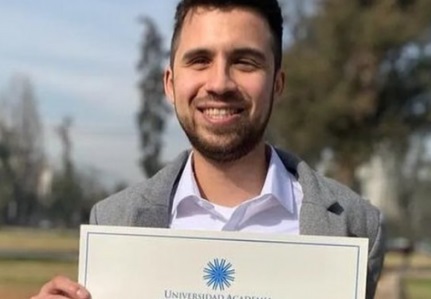The International Secretariat of Amnesty International publishes its own website, with country specific news and campaigns. Do check out the Chile page.
Significant Events from Newsletters 2026
January 2026
Amnesty International called on President-elect José Antonio Kast and his administration to fulfil their human rights obligations in all their policies and government proposals. Kast, who takes office in March, campaigned for Pinochet in the 1988 referendum that ended the military regime. He has spoken in defence of Pinochet’s dictatorship and criticised memorials for victims. In 2017, he visited those imprisoned for human rights violations, saying, “vengeance prevails over justice.” Kast built his campaign on the claim that rising migration over the past decade had fuelled crime.
The National Institute for Human Rights (INDH) published its Annual Human Rights Report last month, a comprehensive overview of the country’s rights situation, and submitted it to President Boric, Congress, and the Supreme Court. This year, the INDH highlights systemic barriers to migrants’ access to basic services, social inclusion, legal protections, and economic opportunities. The report calls attention to ongoing discrimination affecting migrants’ access to employment, housing and health care, suggesting that Chile must improve human rights protections in its migration policies.
Amnesty’s 2024 report on Chile (published April 2025)
In Amnesty’s 2024 report on Chile reports that despite the unprecedented conviction of two members of the Carabineros for human rights violations committed during the 2019 protests, impunity prevailed and no bill regarding reparations was presented. Barriers in accessing abortion persisted. Conditions for pregnant detainees remained poor. Changes were made to the regulatory framework on the use of force. Congress continued to discuss bills proposing the criminalization of refugees and migrants. The detention of Indigenous women for selling products in public spaces persisted. Facial recognition technology was implemented without a clear legislative framework.
Significant Events from Newsletters 2025
December 2025
Amnesty International has been trying to put human rights at the centre of the election debate, arguing that rights are not merely historical legacies tied to dictatorship-era abuses, but part of everyday life. They launched “Right to the Future”, arguing, “true security is not built on fear, but on justice, equality, opportunity, and respect for human dignity. Security and human rights are not mutually exclusive: they are inseparable parts of the rule of law. Security cannot be hijacked by authoritarian rhetoric.”
September 2025
Three police officers have now been convicted for the brutal beating of Moisés Órdenes during a peaceful protest in 2019, ruling they used disproportionate force but stopping short of labelling it torture. One officer was also found guilty of obstructing the investigation and falsifying records, while most of the original defendants were dismissed from the case. Amnesty International welcomes the verdict as a step toward justice but warned that impunity for human rights violations in Chile remains a serious problem. It calls on the state to ensure truth, justice, and full reparation while preventing future abuses during demonstrations.
August 2025
In an official visit, the United Nations Special Rapporteur on freedom of peaceful assembly and association, Gina Romero, warned that urgent action is still needed to address outstanding issues for victims of human rights abuses during the 2019 social unrest. Romero highlighted that, while the investigation of senior police officers represents progress, there is ongoing impunity and a lack of comprehensive reparations. She also warned of arbitrary and discriminatory application of laws that restrict the right to peaceful assembly for certain groups.
June 2025
President Boric announced a comprehensive plan to address the Mapuche conflict, based on recommendations from the Commission for Peace and Understanding. This includes expediting the distribution of lands and creating an indigenous affairs body. Chile’s Senate had just approved a 30-day extension (for the 56th time) of the constitutional state of emergency in some Mapuche provinces. Last year Amnesty Chile’s report (Spanish) on the Rights of Indigenous Peoples in Chile highlighted ongoing violations. It concluded urgent action is required to address the criminalization of Indigenous Peoples and to address systemic issues within the justice system.
May 2025
Amnesty has sent an open letter to President Boric warning of problems with the effectiveness of the Consultative Unit for the Reform of the Carabineros – a body composed of security experts who provide specialised guidance to help with the reform process. Amnesty are concerned about the lack of transparency regarding the discussion on less-lethal weapons and electroshock weapons – known as Tasers. Amnesty flag the serious consequences of an irresponsible use of Tasers and a lack of clarity on several issues relating to their use by the Carabineros.
February 2025

Renzo Inostroza
In October 2019 Renzo Inostroza, a 24-year-old university student and athlete, was with a friend who was subject to an unprovoked attack. Renzo started filming and was shot, receiving 19 pellets in his face and body, losing vision in one eye. He was featured in the Amnesty report Eyes on Chile. Now Carabineros Corporal Belisario Alexis Morales has been sentenced to eight years in prison, for using his riot shotgun without justification or compliance with protocols. Lieutenant Fernanda Belén Cerda, who ordered the use of the weapon, was sentenced to three years in prison, under supervised release.
January 2025
Amnesty International has issued a new Urgent Action. Last month a Commission of the Chilean Senate began debating a reform to the country’s current Migration Law that poses a grave threat to the rights of migrants, particularly the right of children and adolescents to education and health. The bill could lead to the expulsion of unaccompanied children, the indirect expulsion of minors due to their parents’ migratory status, and the arbitrary detentions of migrants and asylum seekers. Please send a letter or email calling on the Senate to reject this draft legislation.
Significant Events from Newsletters 2024
December 2024
The trial against former Carabineros lieutenant colonel Claudio Crespo has now begun; its expected to last up to a year. The prosecution hold him responsible for the shotgun blast that blinded Gustavo Gatica during the peaceful protests of 2019. Meanwhile, as the 5th anniversary passes, thousands of other victims are trapped between hopelessness and impunity. Sebastián Méndez, 38, who was blinded in his right eye by a projectile fired by a police, took his own life on the anniversary, the 5th victim known to have done so.
November 2024
A formal hearing launched a criminal investigation against three people who served as senior Carabineros commanders during the political repression of protests in 2019 – including the recent Director General of Carabineros, Ricardo Yáñez. The North Central Metropolitan Prosecutor’s Office announced that it is investigating them for their possible participation as perpetrators of the omissive crime of unlawful coercion, resulting in serious injuries and homicide, initiating legal proceedings. Two people died at the hands of the police and thousands suffered serious injuries, including irreversible eye damage.
On the 5th anniversary of the protests Amnesty International said victims and their families continue to wait for justice and full reparation whilst impunity continues to prevail in the country. Of a total of 10,142 complaints of police and armed forces brutality during this period, less than 1% have obtained justice. The remaining 99% are still pending and many of them may not be investigated – some could expire after five years. Amnesty International has consistently maintained that reform of the Carabineros is essential, but highlighted that “structural reform of the Carabineros has been practically forgotten.”
September 2024

Gustavo Gatica and Claudio Crespo, when a Carabineros Officer
After being rescheduled three times, the trial preparation was held for Gustavo Gatica last month. Gustavo was blinded in both eyes after being shot during the peaceful protests of 2019. Prosecutors requested 12 years in prison for the former Carabineros officer Claudio Crespo, accused of unlawful coercion resulting in very serious injuries against Gustavo Gatica. The trial itself is expected to begin by January 2025. Gustavo has launched his own YouTube Channel to keep the public informed. Amnesty International Chile will continue to observe developments in this long campaign for justice.
July 2024
June 18 marked the 50th anniversary of the creation of the National Intelligence Directorate (DINA). The DINA was created as a military organization outside the military chain of command; it was empowered to operate as a secret police force to monitor, arrest, imprison and eliminate anyone considered an opponent of the regime. The US National Security Archive has just published a curated collection of declassified CIA, DIA, FBI and State Department documents, along with key Chilean records, that reflect the history of DINA’s horrific human rights atrocities and terrorist crimes.
June 2024
In January an indictment was served against three current and former senior commanders of Carabineros de Chile, relating to the protests in 2019. This included the current Director General of Carabineros, Ricardo Yáñez. The indictment was to be “formalized” (forcing Yáñez to resign) in May. This has now been postponed till October 1st. Amnesty International has sent a letter to the National Prosecutor calling for full accountability for the violations committed during the social outbreak and the zealous safeguarding of the independence of public prosecutors’ role and work.
Last month we said charges have been brought against a specific Carabineros officer, Claudio Crespo, who is accused of blinding Gustavo Gatica in November 2019. Regrettably, a trial date for Gustavo Gatica’s trial preparatory hearing, initially scheduled for 26 April, was also postponed until 9 August. Gustavo’s legal counsel are appealing this decision. We have not been asked to take further action at this stage.
May 2024

Graduation picture of Gustavo Gatica
Gustavo Gatica is also featured in the campaign to regulate policing equipment. Gustavo was blinded whilst taking part in the peaceful protests of 2019. Charges have been brought against a specific Carabineros officer, Claudio Crespo (previously referred to by his identification number “G3”) and a trial date is expected imminently. Amnesty are currently focusing efforts on command responsibility on a separate criminal investigation, but one which can also provide justice to Gustavo and hundreds of other victims.
Meanwhile Claudio Crespo has just launched a book – G3: Honor and Betrayal: Revelations of a police officer betrayed by the State. Dismissed from the Carabineros, no longer on remand in prison, he is high profile on television and platforms such as X. He has founded and presides over a political party, Alternative for Chile. Crespo has previously been accused of using excessive force, including shooting indiscriminately and blinding someone during protests in 2018. He admits to shooting his shotgun “at least 170 times” on the day Gustavo was blinded.
March 2024
The campaign for the protection of the Women Water Defenders in Chile has now been closed by Amnesty. This is partly due to changes in the dynamics of their organisation and the risk situation of women has improved; they believe that they no longer face immediate personal threats. The three women defenders will continue their activism to defend water on different fronts and with other civil society organizations. Amnesty Chile will continue to be in contact with them individually and provide necessary support when they require it.
Water, like other essential natural resource, is managed by private entities through usage-rights purchases. This dates back to Pinochet’s 1980 constitution. Chile’s economy is built on water-intensive, extractive industries. The country is recovering from last month’s devastating fires, that left at least 133 people dead, after a heat wave (and winds) that affected Chile, Argentina and many other parts of South America; temperatures touched 48°C. The heat exacerbates the drought; over half the population live with severe water scarcity. Demand for water significantly exceeds its availability.
January 2024
56% of Chilean voters rejected a new draft constitution to replace the country’s dictatorship-era charter. President Gabriel Boric has said it would be his last attempt to reform the constitution. Voters rejected a progressive version in 2022, and this latest draft was drawn up by a more right-wing constitution committee. “Unexpectedly, they managed to write an even worse constitution” said Gustavo Gatica prior to voting. Gustavo, blinded during the 2019 protests was featured in Amnesty’s report “Eyes on Chile”, and is highlighted in the current Urgent Action calling to end police impunity.